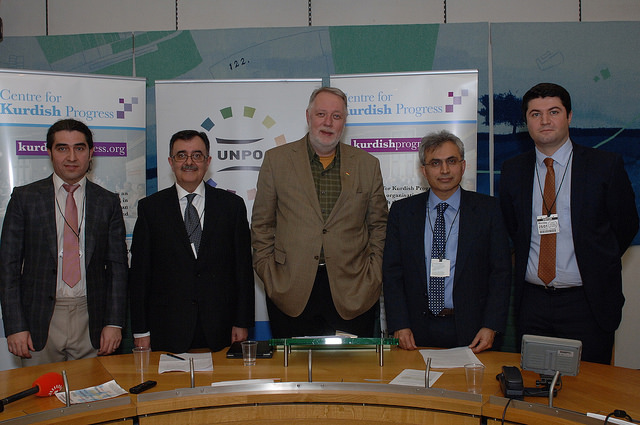January 25, 2016 at 7pm – 9pm

Public Forum in partnership with Unrepresented Nations and Peoples Organization (UNPO)
This public was kindly hosted by Emma Reynolds MP for Wolverhampton North East. Keynote speakers were Mr Nasser Boladai, President of UNPO, Mr Abdullah Mohtadi, Leader of the Komala Party of Iranian Kurdistan, Mr Loghman Ahmedi, Head of the Democratic Party of Iranian Kurdistan’s (PDKI) Foreign Relations and Dr Seevan Saeed of University of Exeter.
Chaired by Director of the UK’s All-Party Parliamentary Group (APPG), Mr Gary Kent, this public forum brought together speakers from various Kurdish backgrounds and political affiliations. The speakers put forward a number of issues concerning the human rights situation of Iran’s Kurds, comparing it with that of other Kurdish communities and other ethnic groups in Iran.
Mr Nasser Boladai expressed concern on the isolation of the Iranian Kurds, as well as that of his own people, the Baloch. Mr Boladai brought attention to the fact that the international community seems not to be aware of the situation inside Iran and in particular of the country’s diversity. Despite appearances, the oppression of ethnic and religious minorities has been further accentuated under Rouhani’s presidency, with a significant increase in executions especially in Balochistan and Kurdistan.
Mr Abdullah Mohtadilaid out the current political situation, underlining how every part of Kurdistan, a very large region split mainly between Iran, Iraq, Syria and Turkey, has its own problems and history. He pointed out how the significant role played by the Kurds against the rise of the Islamic State has increased the community’s visibility. Mr Mohtadi outlined how the Iranian Kurds are discriminated on an everyday basis as well as deprived of basic political rights. There is not one Kurdish governor in any of the Kurdish provinces, nor is the Kurdish language taught in schools, despite its protection in the constitution.
Mr Loghman Ahmedi discussed that Iran’s tactic is to play a role in all external conflicts in the region, managing to shift the attention from its domestic affairs and that Iran’s regional policy is based on supporting, funding and activating different proxy groups which brings instability and conflict in different countries in the Middle East. Mr Ahmedi emphasised the need to counter Iran’s well-known strategy ‘divide and conquer’, by solving and cooperating with other minority groups, as well as with Kurdish political parties in neighbouring countries. This point was further recalled during the debate, when many agreed that the only solution is for all Iranian Kurdish parties to work together and to leave their differences aside, for the common goals of democracy and respect for human rights.
Dr Seevan Saeed started by outlining the internal issues and the divide between North and East Kurdistan, which according to him partially explains the silence concerning Iranian Kurds. Dr Saeed argued that for a change to be possible, the mentality of all Kurdish political parties should shift towards nation-building instead of state-building. Furthermore, he stated that different parts of Kurdistan share certain similarities but solutions cannot be simply ’copy pasted’, due to the communities’ different histories and of social structures.
See Rudaw’ interviews with speakers and guests below (in Kurdish):
http://rudaw.net/kurmanci/world/260120165
When:
January 25, 2016 at 7pm – 9pm
Where:
Boothroyd Room, Portcullis House
Bridge St
London SW1A
United Kingdom
Google map and directions

